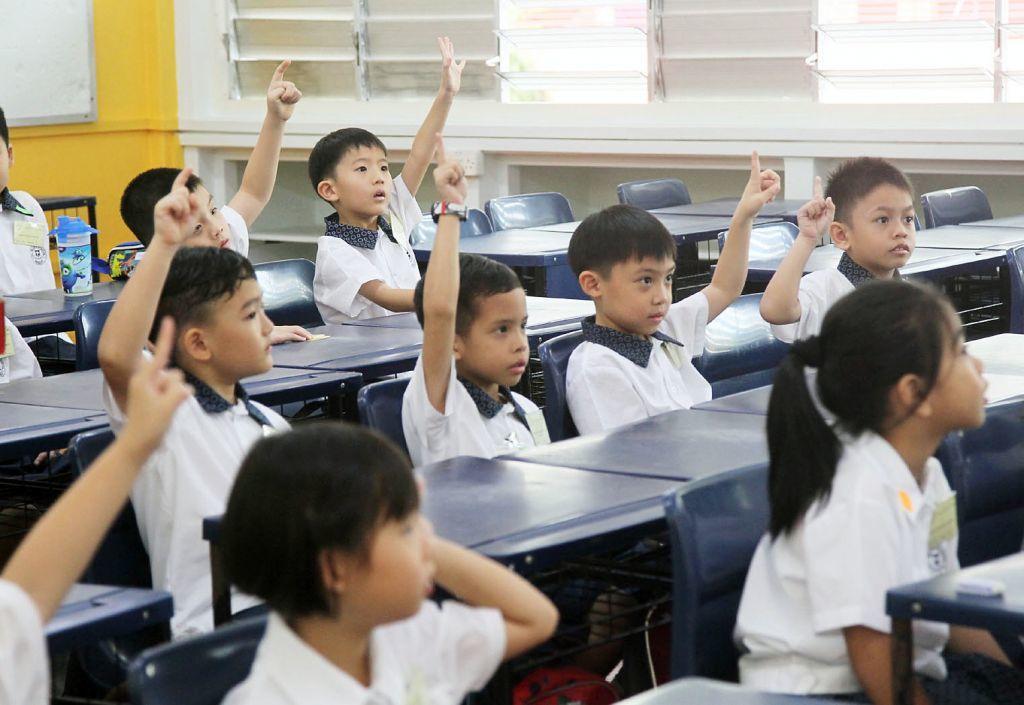Most of our grandparents communicate in dialects, however there is currently a severe language gap between kids and their grandparents. Our young generation today are not able to speak or understand dialects and this has led to a very sorry state of cultural erosion among our generation and our kids.
Other than being able to communicate with one's grandparents, why are dialects important? It is important to preserve our cultures and heritage. Once these disappear, they will be gone forever. Aside from Chinese dialects, there are also Malay and Indian dialects. These dialects should be viewed as key parts of Singapore’s culture and heritage. Some Singaporeans fear that by the next generation, no one in Singapore will communicate in dialect.
Therefore we wonder if is it time to make it compulsory to learn a dialect in Singapore schools.
Other than being able to communicate with one's grandparents, why are dialects important? It is important to preserve our cultures and heritage. Once these disappear, they will be gone forever. Aside from Chinese dialects, there are also Malay and Indian dialects. These dialects should be viewed as key parts of Singapore’s culture and heritage. Some Singaporeans fear that by the next generation, no one in Singapore will communicate in dialect.
Therefore we wonder if is it time to make it compulsory to learn a dialect in Singapore schools.
If we implement learning dialect in schools, we do not need to learn dialects in the same way that we learn English and Chinese on an academically intensive basis. We can teach dialect as a third language, as we do French, German, Japanese and other foreign languages. In fact, we can teach dialects on a more casual basis in primary and secondary schools. This will not contribute to Primary School Leaving Examination or O-Level scores, but students should be expected to attend classes. Teachers can also teach students how to use dialects in certain social settings. Learning should be fun so that students remain engaged and focused.
It has been more than 40 years since the Speak Mandarin campaign kicked off. Its task was to encourage Chinese Singaporeans, who were long used to speaking dialects, to use more Mandarin. Founding prime minister Lee Kuan Yew once said that to continue using dialects outside homes and schools is to interfere with the process of getting Singapore’s young to use Mandarin as their social language.
Mr Lee Hsien Loong, the current Prime Minister, has said that even though there was still room for dialects here, it is not pragmatic for dialects to be used more widely and mastered alongside English and Mandarin. He added that the trade-off between emphasising bilingualism and not promoting dialect use has allowed Singapore to maintain good English and Mandarin standards.
From an economic perspective, knowing dialects such as Cantonese and Hokkien will also help a great deal with doing business in Hong Kong and Taiwan.
What is your view on this? Do you agree or disagree?
It has been more than 40 years since the Speak Mandarin campaign kicked off. Its task was to encourage Chinese Singaporeans, who were long used to speaking dialects, to use more Mandarin. Founding prime minister Lee Kuan Yew once said that to continue using dialects outside homes and schools is to interfere with the process of getting Singapore’s young to use Mandarin as their social language.
Mr Lee Hsien Loong, the current Prime Minister, has said that even though there was still room for dialects here, it is not pragmatic for dialects to be used more widely and mastered alongside English and Mandarin. He added that the trade-off between emphasising bilingualism and not promoting dialect use has allowed Singapore to maintain good English and Mandarin standards.
From an economic perspective, knowing dialects such as Cantonese and Hokkien will also help a great deal with doing business in Hong Kong and Taiwan.
What is your view on this? Do you agree or disagree?
Source: Today Online - 25 Feb 2020





 RSS Feed
RSS Feed
